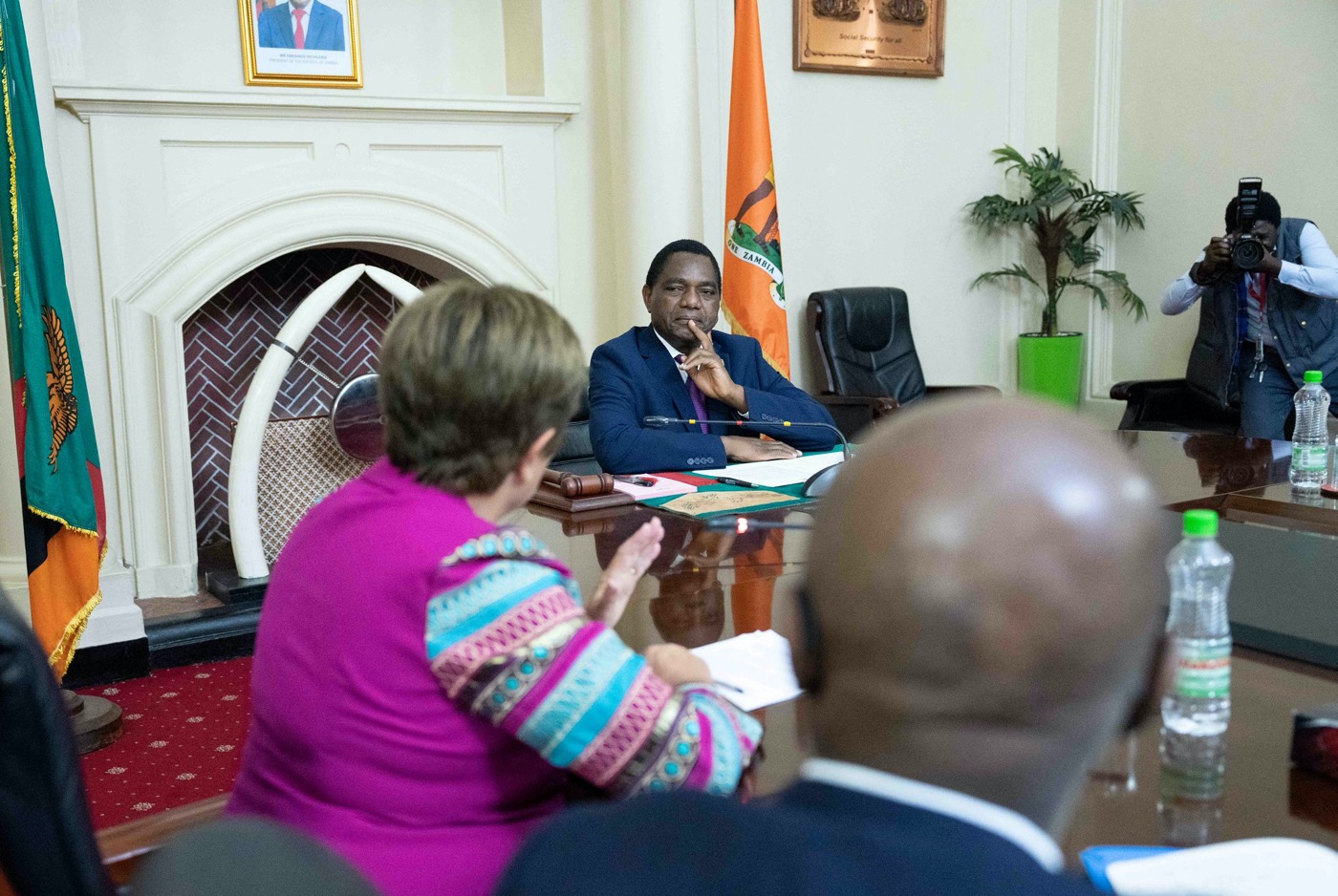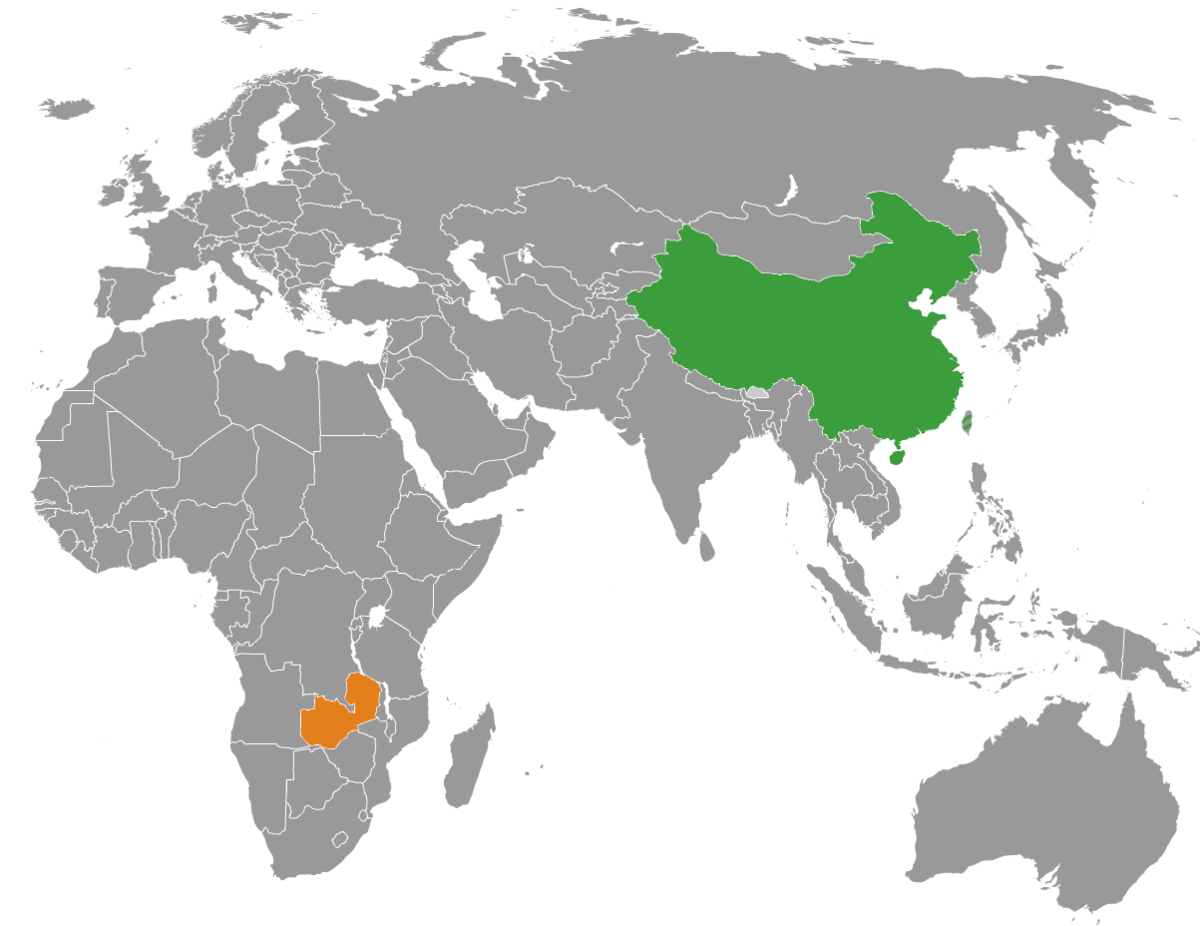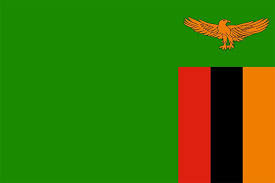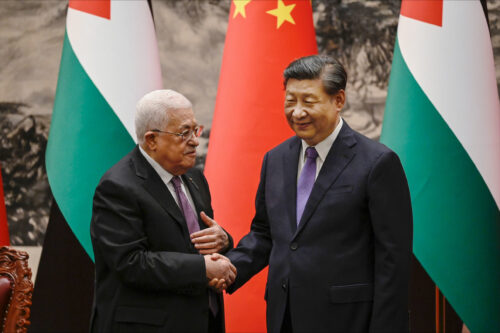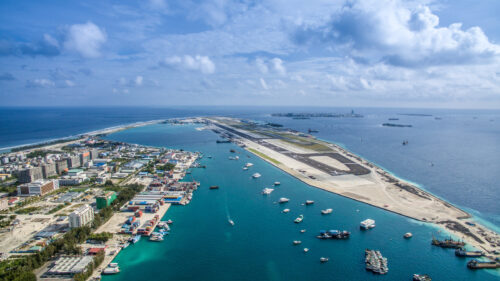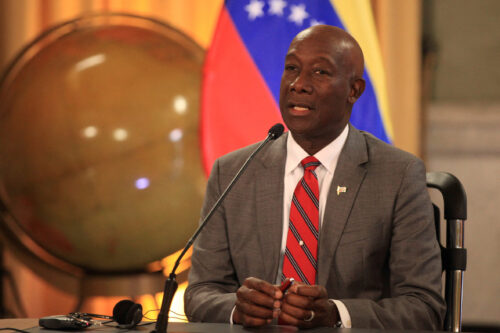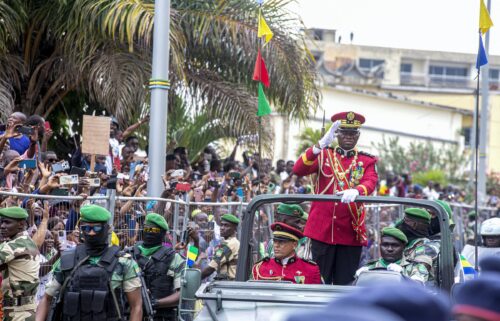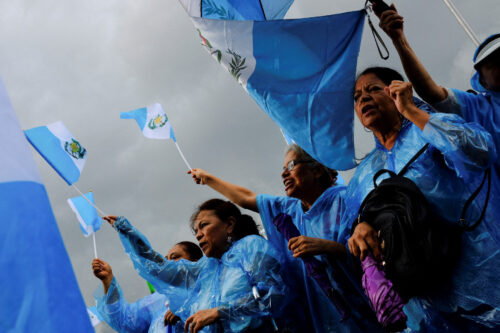Our weekly explainer series, China Ties, looks at China’s relationship with different countries of the world.
“It was a zig-zag, sideways, forwards, backwards, down, up, but we kept our eyes on the ball,” said Zambian President Haikande Hichilema, about a fraught process. Last week Zambia became the first developing country to renegotiate its debt repayments with the G20 cooperation framework, after much ducking and weaving. It had been negotiating shortly after it defaulted in 2020, the pandemic being the final nail in the coffin on its already slowing economy.
It cut a deal to set its interest rates to just 1% on the $6.3 billion owed in loans to Chinese and Western creditors, saving the country $5.8 billion over the next eight years. It’s a big deal for Zambia, a Least Developed Country whose poorest get by on $2 a day.
Chinese banks represented the bulk of Zambia’s creditors, accruing 65% of the loans in numerous building projects. The two countries go back a long way: The defining episode for relations between them (indeed, one of China’s founding myths for being in Africa) was the Tazara Railway, one of China’s first big Africa projects. Back in the 1960s, Zambia was surrounded by white-dominated colonies and desperate to have nothing to do with them. Yet they had to find a way to get their copper ore — crucial for the country’s GDP — to the sea to trade.
Then-president Kenneth Kaunda was turned down for loans and aid from Europe for the project, but got help from Máo Zédōng 毛泽东. In 1967, China sent thousands of workers and a RMB494 million interest-free loan to Zambia and Tanzania to build the Tazara Railway, terminating at Dar-es-Salaam on the Indian Ocean. Kaunda, who tried his best to liberate the nations of southern Africa from European colonizers, is revered in Marxist circles for echoing the P.R.C.’s raison d’etre: to overthrow imperialist power structures and stand on your own feet.
Reverential references to this episode, “cultivated by the leaders of the older generation,” appear time and again in China’s diplomacy with Zambia. In 2007, two days after visiting Sudan to deal with the Darfur crisis, Hú Jǐntāo 胡锦涛 went out of his way to visit Kaunda, by then deep into his retirement. Xí Jìnpíng 习近平 has regularly stated the “great importance” and “special friendly feelings” China attaches to its relations with Zambia (compared to more strategic phrasing with Tanzania, a country that is also part of the Tazara Railway), calling their partnership “a model of solidarity and cooperation between China [and] Africa.”
Republic of Zambia
Founded: October 24, 1964
Population: 20.6 million
Government: Constitutional Democracy
Capital: Lusaka
Largest City: Lusaka
Established relations with the PRC: October 29, 1964
There is relatively little money in this partnership. Trade between the two is peanuts, only worth $6 billion in 2022. China’s biggest import from the country is copper — although coming in at record levels in 2022, it’s still no match for their copper flows from, say, Chile.
Still, the two have had consistently good relations. China set up a special economic zone in Zambia in 2003, and now has more than 600 enterprises in the country funded by Chinese banks and businesses.
Since 2011, Zambia has taken out all kinds of loans with China, for everything from roads to army housing to broadcasting systems. Some of these were dubious. Take the T3 toll road, a crucial link from Zambia’s copper belt, the DRC border, and Tanzania. In 2017, the government signed a deal with China Jiangxi Corporation to upgrade the road, but the project’s terms and the suspiciously high $1.2 billion cost generated allegations of corruption from locals against the government, and was eventually canceled in 2022. A cheaper deal was signed with a different Chinese investor, who intends to recoup the loan out of toll fees.
“With economic decision-making centralized in the presidency,” writes Nosmot Gbadamosi of Foreign Policy, “the lack of publicly available information on the loans from Beijing and the absence of rigorous management systems enforced allowed some Zambian officials to inflate project costs and receive kickbacks.”
Zambia has also endorsed controversial Chinese policies on the international stage, including the Hong Kong National Security Law. Even during the current debt restructuring, where the U.S. blamed China for dragging out the process, Hichilema insisted China was not to blame.
For Zambia still needs China, a big presence all over the region. Hichilema’s government aims to boost copper production. For that it needs to improve its roads (hence the continued interest in the T3 project) and its electrical grid.
But there’s the sticky issue of the Kafue Gorge Lower Power Station, a massive hydroelectric dam responsible for generating 27% of Zambia’s electricity. Although a joint Zambian-China venture, China Eximbank and ICBC have funded 85% of costs. The project slowed when Zambia began defaulting on its foreign debt in 2020, with the Trump administration claiming the dam could be used as collateral on unpaid Chinese debts, which Zambia denies. According to Bloomberg, the Chinese side had requested the dam be ring-fenced in the restructuring negotiations.
Today, numerous projects in Zambia are coming across problems — even Tazara is looking for new Chinese investors after experiencing a consistent drop in freight.
It’s possible there was conflict between China’s diplomats and businesses in Zambia’s debt negotiations. According to a report from the China Africa Research Initiative (CARI), ambassador to Zambia Dù Xiǎohuī 杜晓晖 has been visiting numerous banks holding Zambian debt, hoping to obtain a resolution to the debt problem. “For the banks, profit perhaps is a very important thing in the solution of the debt issue,” Du told them. “But for diplomats, the national interest is more important.”
The Ministry of Foreign Affairs has no say over debt negotiations, but as noted by CARI’s report, they are invaluable at bringing high-level Chinese politicians to the table. Zambia’s special relationship meant Chinese politicians were on its side (or at least wanted to be seen to be so). Perhaps a diplomatic connection upheld by Xi as a model of China-Africa cooperation was too big to fail.
